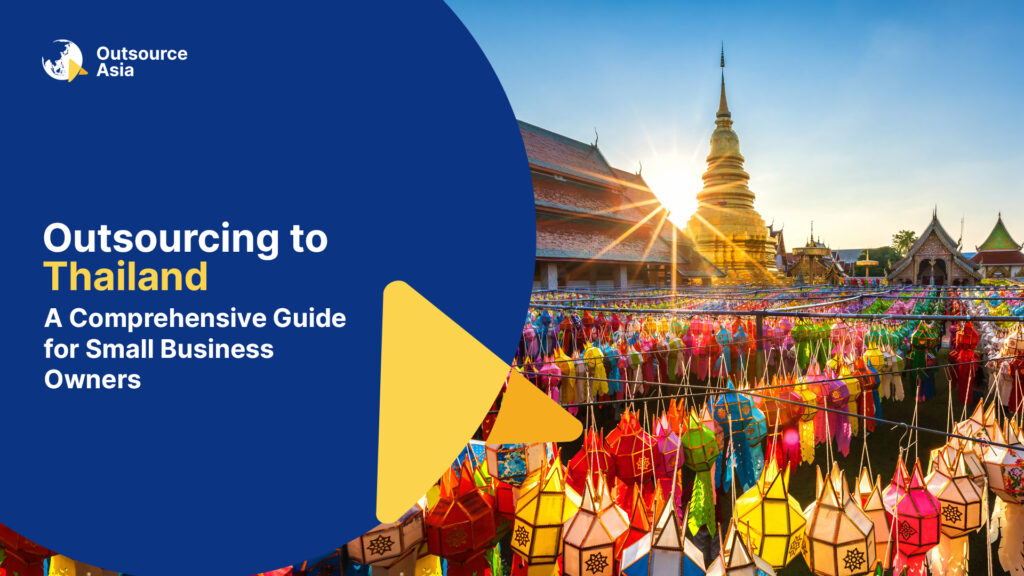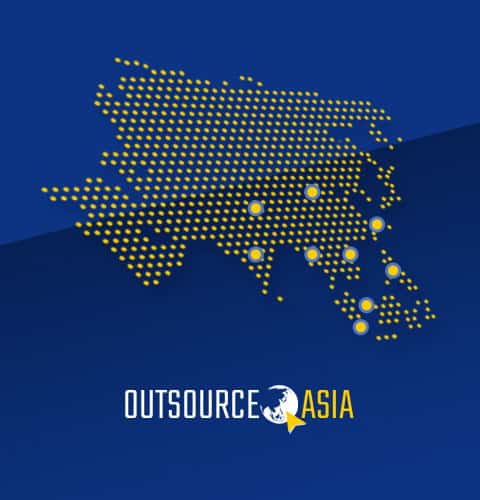
Outsourcing to THAILAND: A Comprehensive Guide for Small Business Owners
Outsourcing to THAILAND: A Comprehensive Guide for Small Business Owners
Thailand boasts one of the largest economies in Southeast Asia. It is regarded as a business hub for tourism, electronics, automotive, and more. Read more below to get to know this fast-developing country and the resources you can have access to when you choose to outsource to Thailand.
As an outsourcing destination, Thailand has many opportunities for your business. It is one of the fastest-growing countries in Southeast Asia and one of the region’s top exporting countries. Although its politics has been somewhat unstable over the past few years, Thailand has been resilient and was able to continue growing through its tourism industry.
With the “Thailand 4.0” policies, their government is aiming for a more modern Thailand. This initiative is centered on increasing support for startups, expanding the country’s digital technologies and capabilities, and modernizing the Thai economy. All of these make Thailand an attractive outsourcing destination for foreign businesses.
Outsourcing Factors in Thailand You Need to Consider
1. Strategic Location
Thailand’s location makes it an investor’s gateway to doing business in the largest growing economic market — Asia. It is at the center of most of the ASEAN countries which helps the country make convenient trade with India, China, and other regions where there are new and emerging markets.
Many multinational companies have established their international headquarters in Thailand. This makes the country so much more attractive as big names like Toyota, Nestle, IBM, Sony, Chevron, and more are attached to their diverse international profile.
2. Highly-Skilled Workforce
Thailand’s government aims to arm its citizens with education to provide them with a bright future. There is an established policy that gives all of their citizens free basic education. They take this up a notch and aim for their citizens to be highly-skilled players on the global stage so as to also encourage learning the English language.
With these, the Thai workforce is incredibly skilled and ready to provide outstanding work. What’s more, is that you can gain access to their skills at a cheaper cost. Thailand has one of the lowest labor costs in Asia because their living costs are cheaper compared to other countries.
3. Comfortable Business Landscape
As of 2019, the World Bank’s Ease of Doing Business (EoDB) index ranked Thailand at the 21st spot. Out of the 190 surveyed countries, Thailand was found to have a regulatory environment that is conducive to business operations. The country’s economic activity like laws and regulations is accessible and simple to implement for local and foreign businesses.
Their high ranking can also be attributed to how easy it is to build a business in Thailand. The processes are streamlined to make company registration easier for new businesses. They also provide sufficient infrastructure, communications and IT networks, and reliable electricity to ensure optimum business conditions.
4. Increasing Economic Growth
Thailand is a country with steadily increasing economic growth. Within 40 years, it has moved up from a low-income country to a now upper-middle-income country. Its economic growth also reduced the poverty rate from 67% in 1986 to 6.3% in 2021.
As part of the Thailand 4.0 plan, a 20-year economic strategy is implemented to further grow Thailand’s economy. An important factor in this strategy is improving the quality of life of the Thai people. With this, the working population is more engaged and happy to work for steady economic development.
5. Incentives for Foreign Companies
The country’s investment policies encourage free trade. Foreign investments are widely supported, especially if they contribute to the development and innovation of Thailand. This supports comes in the form of tax incentives, support services, regulations, and business-friendly policies.
Foreign companies investing in Thailand’s development will receive incentives like no import duties on essential materials and machines for export or research and development. The government also plans to reduce corporate income tax by 50% within 10 years. The Thailand 4.0 plan also outlines a 15-year competitive tax exemption for foreign investments made for the research and development of new technologies.
Notable Industries in Thailand
Thailand is one of the best outsourcing destinations in Southeast Asia. With its amazing location and inexpensive prices, it is no wonder why there are many outsourced services in the country. The most common industries are IT, Human Resources (HR), Manufacturing, and Automotive.
While IT may not be surprising, HR is. In businesses, we all know that HR is a division where you need many resources to standardize processes and boost productivity. Thai HR outsourcing services often help with organizational structures, staffing needs, background checks, employee engagement programs, and talent acquisition. They are also well-versed in payroll management as they can keep up with the changing rules, policies, taxation laws, and more.
Thailand is also quickly becoming known in the automotive industry. With support and investment from various foreign companies, the country is now a regional hub and a production center for different electric and electronic parts. Thailand is also a producer and an exporter of many agricultural products with rice as its chief export.
These are some of the some aside from those mentioned above that you may want to check out when outsourcing to Malaysia:
- Automobiles
- Financial Services
- Tourism
- Auto Manufacturing
- Textiles and Garments
Outsourcing Challenges in Thailand
No outsourcing destination is perfect. While Thailand is an attractive country for foreign businesses, you must also be aware of some of the challenges you may face.
As mentioned above, Thai people are encouraged to learn the English language to be able to work with various foreign companies. However, their English proficiency is still not that high so English-speaking companies may encounter talents that are not fluent in the language. But this issue is easily remedied in the hiring process as you can gauge an applicant’s fluency through interviews and tests.
There is also a lack of cybersecurity infrastructure. Thailand lacks cybersecurity talents so many companies can easily be exposed to cyber-attacks. However, the government is continuously addressing this through the Thailand 4.0 plan. They are prioritizing cyber-resilience to strengthen their cybersecurity measures. This would help companies feel safer in outsourcing their company’s various divisions without fear of cyber breaches.
Outsource to Thailand with Outsource Asia
With its strategic landscape, business-friendly policies, and skilled workforce, Thailand is an amazing outsourcing destination for many foreign companies. The government’s Thailand 4.0 plan also assures business owners that they would have the proper resources and access to modern infrastructures to conduct business in Thailand.
Thinking of outsourcing to Thailand anytime soon? Let us help you out!
Book a FREE appointment with Outsource Asia experts today.


